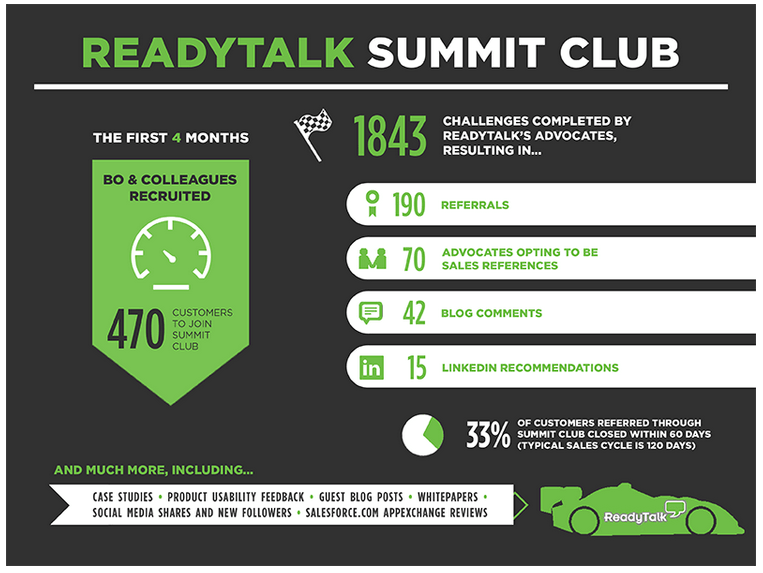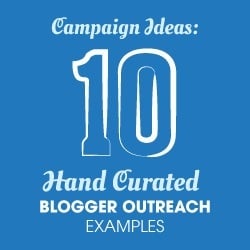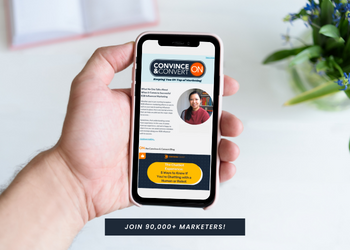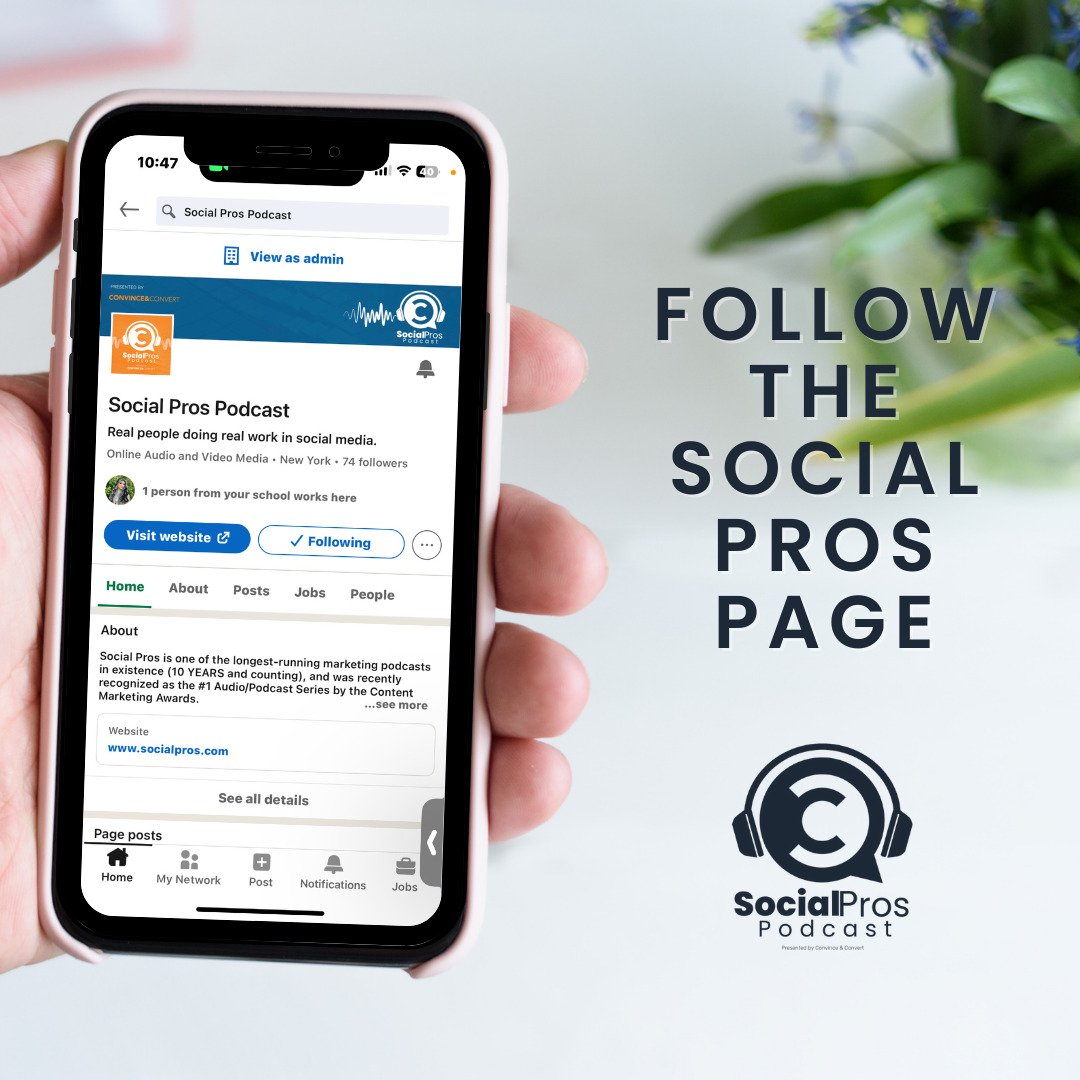
The folks at ReadyTalk, a web conferencing platform had their work cut out for them in marketing their brand against big names such as GoToMeeting, WebEx, and join.me.
Not to mention, this bootstrapped company didn’t have a huge budget to grow off of.
What they did have, though, were happy customers.
They needed a way to give these customers a voice and reward them for their word of mouth brand recommendations. They didn’t want to go right out and say, “Hey, thanks for being our customer. Now will you please talk about us more?”
That just doesn’t seem like good manners, does it?
Goals
To get an inside look and better understanding of how ReadyTalk worked around the awkwardness of asking happy customers to say good things about their brand, I asked their Marketing and Communications Manager, Bo Bandy, a couple of questions. Bo gave some awesome insight in to what worked.
Because customer referrals led to the highest rate of closed deals, ReadyTalk knew that they wanted to base their marketing on working with brand advocates. As with any new tactic or strategy implemented—the best place to start is writing down your goals before defining a strategy. ReadyTalk defined the following:
- Increase lead generation
- Build a community of engaged customers
- Solicit product feedback from customers
- Increase sales effectiveness through customer referrals
- Increase “marketing with customer” tactics such as guest blog posts, case studies, testimonials, etc.
How!?
To achieve these goals, ReadyTalk first partnered with Influitive—a platform that focuses only on advocate marketing and serves as a hub for an entire advocate digital marketing strategy.
ReadyTalk and Influitive worked together to develop and implement the Summit Club. Only customers who were considered “brand fans” were asked to join the Summit Club.
Once a “happy person” (or brand advocate if you want to call it that instead) joined the club, they were given different challenges and ways to earn points. Points could be traded in for different rewards, incentivizing the customers to continue the word of the mouth recommendations and most importantly, establish a relationship that was mutually beneficial.
What Makes an Advocate Anyway?
An advocate for this project was defined as: A customer who had a non-financial investment in ReadyTalk but was happy with the brand.
In general, an advocate is someone who is happy with your brand and willing to talk about it—many marketers just give it the fancy name.
ReadyTalk reached out to customers who fit any of the following criteria:
- Customers who hand given them an NPS score of 8 or higher on the yearly customer satisfaction survey
- Customers who previously participated in advocacy activities such as case studies
- Customers who talked positively about ReadyTalk in social forums
- Customers who expressed brand satisfaction and were uncovered through customer facing employees such as sales and customer support
An Extra Gold Star: Product Feedback
The product feedback that ReadyTalk gathered from their Summit Club members was an added bonus to their advocate marketing program.
“The product feedback has been tremendous and, in all honesty, probably worth more than the leads that are coming in. We’ve been able to launch a Customer Insight Team, which is a group of 60 customers who agree to speak with us for an hour at least once a quarter and, in the interim, they provide feedback on product features and ideas.” – Bo Bandy
Results
In just 4 months, ReadyTalk had a network of 470 opted-in brand advocates which led to 190 qualified referrals! These results were incredible for Bo and the team.
Caution Areas
It’s important to remember that not everyone is right for your advocate programs. Don’t invite just anyone who would want prizes to join.
Likewise, don’t invite people who aren’t already customers or who don’t already love your brand into the program. Even if you find people who have a lot of traffic or a contextual affinity, consider putting them in a nurture program and contact them when they’ve done things to trigger “advocacy status.”
You only want to incentivize and work with people who are genuinely happy with your brand. These are the word of mouth recommendations that are sincere and authentic. The rest is just noise, and yes, insincerity can be picked up in tweets and blog posts.
Don’t overwhelm your happy people. “We aim to send formal communications every two weeks. We might send a digest of hub activity, a custom newsletter, or a note about a specific challenge,” Bo shared. “It hurts our email rates if we over-communicate, so we try to be sensitive to that.”
 ReadyTalk won the BAMMIE Advocates Unite! award last year for their Summit Program implementation and results.
ReadyTalk won the BAMMIE Advocates Unite! award last year for their Summit Program implementation and results.
Have you implemented any type of advocate marketing program or strategy in to your marketing toolbox? Please share in the comments!
Do you have an awesome outreach marketing case study to share? I’m always looking to collaborate so email me at kristen@grouphigh.com!

